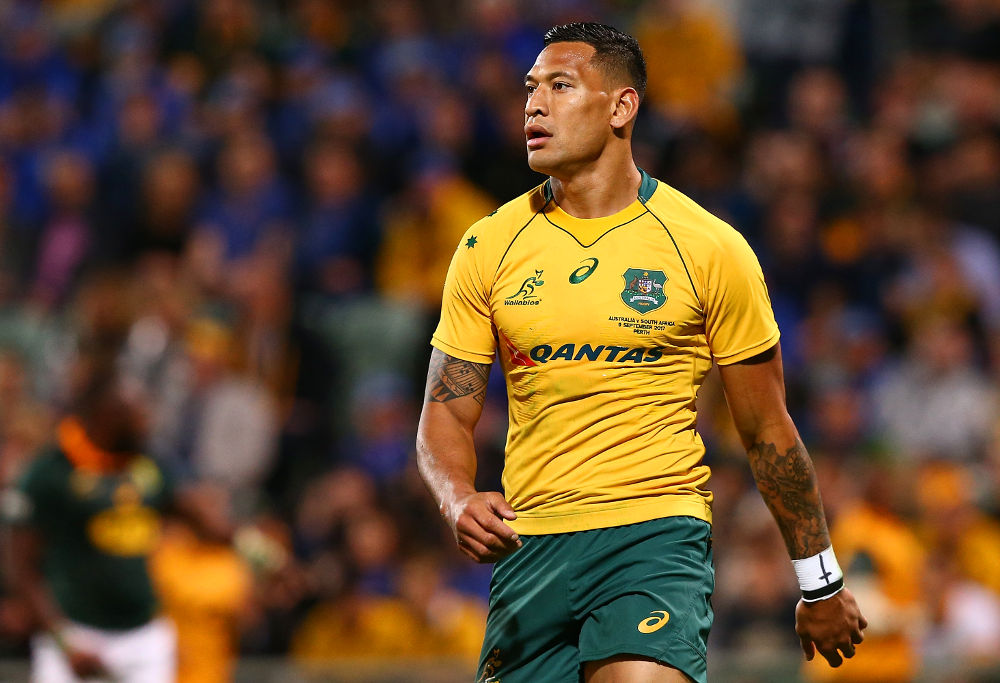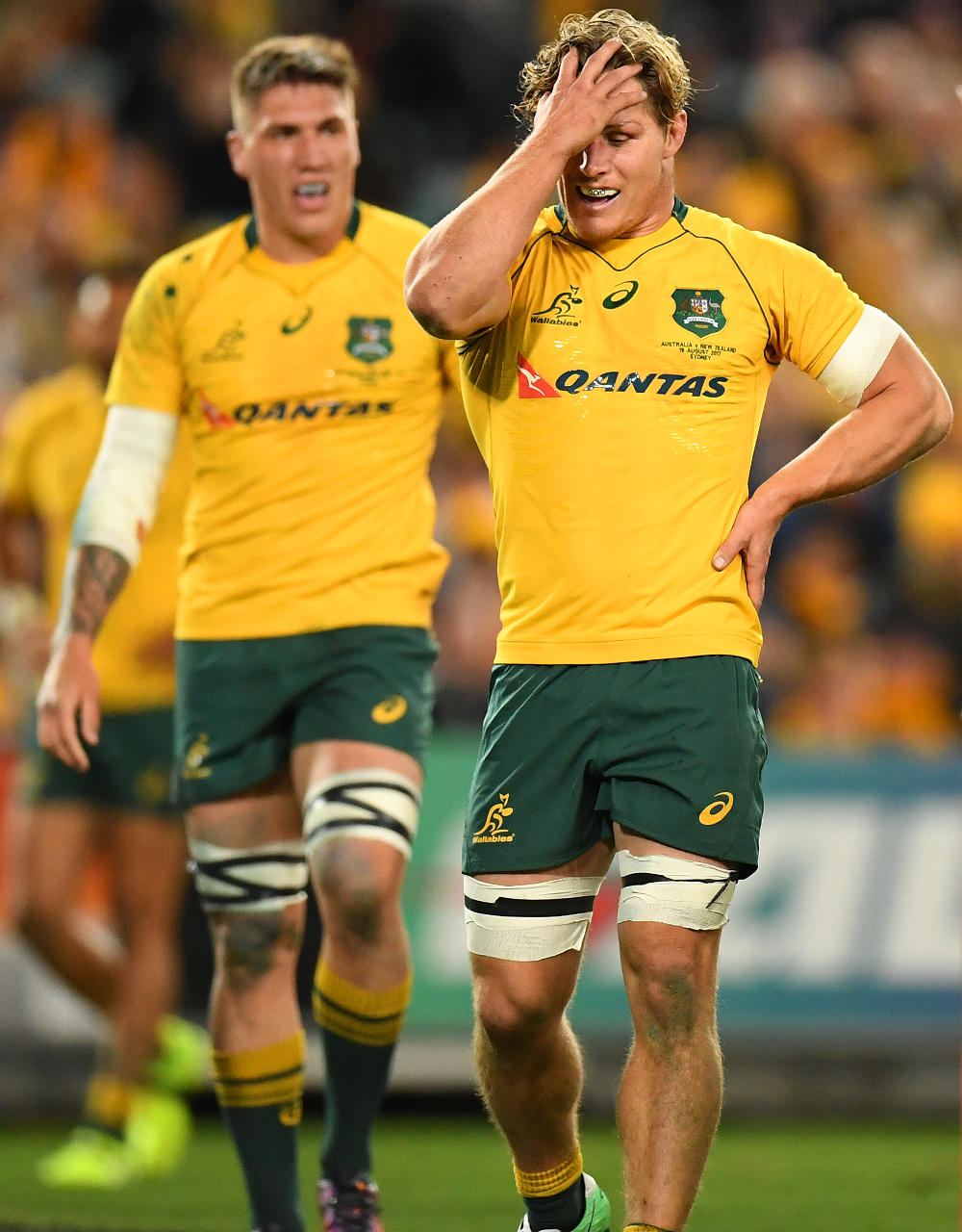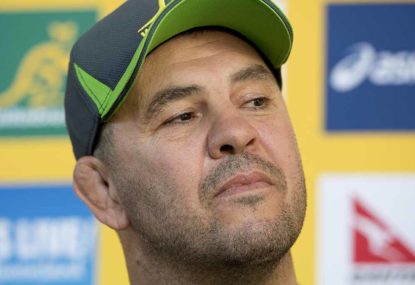When the Springboks arrived in Australia recently the Wallabies and Boks had met 83 times for just a solitary draw.
Three weeks later the tally now stands at 85 meetings for three draws; 160 minutes of rugby in Perth and Bloemfontein failing to separate two obviously well-matched sides.
At game end, 27-27 in what was a thrilling Test match, the Fox Sports rugby team swung into action, calling for extra-time to be played, even to the extent of feeding leading questions to interviewed players to support their cause.
Almost certainly this will be dismissed by the powers that be as nothing more than a broadcaster with vested interests clutching for a winner versus loser narrative. Others will happily reflect on this draw as a fair outcome for two sides who gave their all, but couldn’t quite establish an advantage over the other.
Right from the first whistle the game established a rhythm and flow that never let up, the Springboks maintaining possession and working the Australian defence from side to side; a tactic they would continue throughout.
While their intent was to be admired, they were poorly served by the inability of halves Ross Cronje and Elton Jantjies to align themselves squarely, with the result being that – with one notable exception in the second half – the Springbok backline attack was too lateral to take full benefit from their 60:40 possession advantage.
They were better served by quickly recycling and punching on the edge of the ruck, catching the Wallabies’ forwards too slow to re-form, leaving Israel Folau and Marika Koroibete to man the defensive post, a mismatch prop Ruan Dreyer eagerly took advantage of for his try.
Dreyer was to find less joy at scrum time however, propping against Scott Sio as if someone had told him it was compulsory to try to position his feet behind the goal-line. Or perhaps he was on a mission to bring back ‘planking’?
Earlier, it was Folau who opened the try scoring, spearing through off an inside ball from Bernard Foley – not the only pass of the game that tested the laws of physics.

(Photo by Paul Kane/Getty Images)
Both defences clocked off early in the second half, curiously before fatigue or the effects of altitude had kicked in, and the thrust and counter thrust contributed to a highly enjoyable, high intensity contest.
Foley was instrumental in all three Wallabies tries, his straight running and fend putting Koroibete away on the right flank, before a superb, Aaron Smith-like bullet pass found Koroibete on the left edge this time, for his double. Great stuff, mitigated only slightly by a couple of misfired kicks.
By contrast, Jantjies too often distributed the ball above and behind the inside shoulder of his outside receiver, stifling the Springbok backline attack. Jantjies also missed a 78th-minute penalty that almost certainly would have won the match, but in reality, this was justice for a blatant forward pass being missed in the lead-up by referee Ben O’Keefe, who otherwise had an excellent match.
It also felt right for this game to be determined by tries scored – three each – than by a penalty goal. Much of the pre-game chatter had fans believing that both sides would be popping over long bombs from 60-plus metres, but in the heat of battle, both captains elected mostly to keep the ball and kick for the touchline instead.
Among the many outstanding contributors on both sides, Siya Kolisi will long remember his contribution to Dillyn Leyds’ try (more fondly than Kurtley Beale one suspects), and Will Genia was again at his sharp and accurate best (note how decisively he broke from the scrum for Folau’s try).
The supreme contributor however was Michael Hooper, the heart and soul of this Wallabies team. Working harder than the undertaker currently trying to get the smile off Hugh Hefner’s face, his effort to single-handedly create a turnover in the 79th minute, to give his team one last shot at victory, when other mortal players were out on their feet, was bordering on superhuman.
Post-match, Hooper’s comments maturely and accurately reflected the progress his side is making – frustrated in their inability to take advantage of all opportunities, while recognising that a rare win on the high veldt was almost achieved through some high quality play that, at times, approached their best efforts in Dunedin.

(AAP Image/Dean Lewins)
After their win against Argentina in Canberra I was critical of the Wallabies for not playing rugby that inspired fans. Anyone failing to be stirred by this performance, or the match itself, is a very hard marker indeed.
Before the start of the Argentina versus All Blacks match in Buenos Aries, Roar Guru Diggercane and I pondered how long it would take Pumas’ lock Tomas Lavanini to do something stupid. Only two minutes 21 seconds as it turned out, although his yellow card after 22 minutes seemed to be as much about reputation than merit.
Matt Todd was also harshly treated by referee Jaco Peyper, binned in the 38th minute for bringing a maul to ground when he had his arms clasped around the ball in an onside position. It was as if Peyper realised that he should have waved the card at Keiran Read at the previous maul, and so was squaring the ledger.
This match was similar in many respects to the opening match in Sydney, with the All Blacks effectively killing the contest early with slick Damien McKenzie and Beauden Barrett inspired tries, before the Pumas eventually found a way to adjust the pace of the game to their liking, stiffening up their defence in the process.
They were aided by an accelerating All Blacks’ error count – handling lapses, wild passes, high tackles, missed lineout throws and kicking dead from penalties all stunting their attack. Even Barrett’s famed kick-pass wasn’t working, although Barrett might have reflected later that this wasn’t the right tactic for such a narrow pitch.
In the end, five tries to one, a strongly performing scrum, and Sonny-Bill Williams’ best match for some time, (why was he wearing a cummerbund?) still represented a worthwhile outcome for New Zealand, considering some of the players rested, and the fact that when the Pumas do decide to dig in, they are enormously difficult to overcome.

(AAP Image/Dave Hunt)
The All Blacks also blooded another newcomer and celebrated his debut try; David Havili shaking off the effects of teammate Rieko Ioane curiously grabbing him uncomfortably close to his nether regions during the national anthems.
Combining the Tri Nations and Rugby Championships, New Zealand now heads to Cape Town with their 15th title from 22 in the bag – yet another demonstration of their dominance in the professional era.
Meanwhile, another piece in the complex jigsaw that is professional rugby in Australia was neatly put into place on Friday with the announcement that Western Force coach Dave Wessels had accepted a new role with the Melbourne Rebels.
The announcement left those who wrote and reacted to reports a day earlier that Wessels was Ireland bound, redder than a Munster jersey. Wessels playing his cards now clears the way for prominent Force players to follow him to Melbourne, or else find places at Australia’s other three remaining franchises, potentially delivering the ‘five into four’ outcome that the ARU desires.
For those players whose phones aren’t ringing, this will be an awful few weeks. But it is also the point – if all four Australian franchises aren’t demonstrably made stronger by the demise of the Force, then what on earth was all the pain and heartache for?
There was pain of a different kind for Richmond supporters yesterday, shaking off the effects of a celebration that only 37 years of mediocrity can bring. Walking into Punt Road Oval on Saturday was a surreal experience, among thousands of Tiger faithful still not believing that our modest side could somehow be in an AFL grand final.
Three hours later the impossible dream was a reality. Two take-aways for rugby came to mind, firstly that committed defensive pressure – maintained for the whole match, not just parts of it – will take any side a long way.
The second concerned coach Damien Hardwick, under extreme pressure from media and fans at the end of last season after a lame 13th placed finish. Instead of following a populist route and sacking him, the board of management stood firm in their belief that they had the right man at the helm, and backed changes to the coaching support group, in concert with astute recruitment.
If the ARU truly believes that they have the right man in Michael Cheika, then they and Cheika will take comfort in recognising the value of stability and continuity, and the confidence that this provides to the coaching and playing group.
































































































